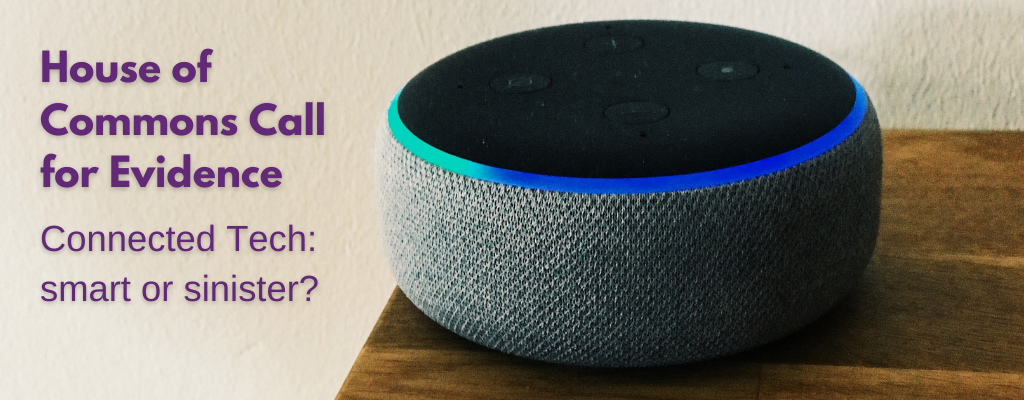
The government host consultations and inquiries throughout the year, and it's really hard for individuals or organisations to stay on top of them all. Occasionally, something will pop up that is blatantly related to our work, but often the connections are not always that clear. Luckily, that is where my colleagues at Salford CVS and myself come in!
The latest call for evidence is from an inquiry from DCMS that is looking at the impact and use of smart and connected technology. But most importantly, they are looking at what can be done to keep it safe, accessible, and secure for individuals.
Smart technology is in a lot of homes (around 1 in 5) – whether it’s smart TVs, speakers, Ring Doorbells, or virtual assistants such as Alexa or Siri. Not forgetting wearable technology like Fitbits and your smart mobile phones. It can have a positive impact on your life whether on a simplistic level, such as setting cooking timers and listening to music, or more whole-scale approaches such as this Salford pilot to support independent living. But there are also negatives, ranging from digital inclusion and cyber security concerns through to potentially reducing physical activity (not having to move to turn lights on and off for example).
The DCMS Committee is inviting written evidence on a range of questions on the topic including:
-
What are the impact of smart technology on people’s lives including any particular groups who may benefit or be affected? This may be a positive, such as how technology has supported independent living, help with energy-saving like adjusting heating remotely, or simply supporting people in their daily life e.g. you can now purchase things by simply asking your virtual assistant. It may also be a challenge, like how certain groups struggle to use devices and feel excluded.
-
What are the threats and risks, whether it's the risk of using personal data, cyber security, or supporting people and organisations to be more digitally literate and cyber secure? Does existing legislation do enough? You might want to use the response to talk about digital skills in your communities: Does there need to be more investment in digital skills training? What would that look like? Are current approaches working? This is your chance to potentially share the good as well as the bad and the ugly! Within the Queen's Speech, there were references to changing both data protection law and legislation around electronic security. But what’s the priority for you as the legislation has a difficult balance to be hit – support innovation, research, and new uses of data but ensure the public is aware, comfortable and trusts how their information is used.
-
Last but not least, how do you encourage safe, ethical, and user-friendly design? Smart tech is now part of our lives. But how does the government help ensure that it's responsible tech that's being developed? It might be as simple as inclusive design and accessibility (remember when devices struggle with certain accents?). Or the bigger picture might be issues like helping people protect their privacy and have a better understanding/ability to limit how their data is used.
Submissions are open till the 23rd of June
Remember when submitting evidence to committees our top tips:
You don’t have to answer all the questions, you can keep it only to the bits that you or your organisation care about.
Don’t forget to include an introduction to you or your organisation and your reason for submitting evidence
Keep it clear and concise but if it ends up over 3,000 words you should include a short summary as well
Your evidence will usually get published online (and will be public forever). This includes your name and your organisation. You can ask for anonymity when you submit your evidence especially if you want to include personal information / examples.
Get more details about the DCMS Committee's call for evidence on the government website.